Student Voice of Mental Health Award Winner Areli Rosales on the Power of Vulnerability
Areli Rosales has always felt it was her duty to help heal the people in her life. Growing up the child of an immigrant mother ...
JED conducted an online survey with nearly 200 college and graduate students from across the country1about their emotional readiness for the fall 2020 semester, given the uncertainties accompanied by COVID-19. The study found:
These findings are critical given that in-person restrictions are continuing across college campuses and other schools in the nation and cases of COVID-19 have spiked this fall. Mental health concerns have been documented since the onset of the pandemic2 and can be expected to continue for the duration of the pandemic.
Some students are getting help and support for their emotional health, but not enough:
Students need more support from their school administrations and communities to persist through the physical and emotional stressors of this current time. Mental health should be a top priority for schools.
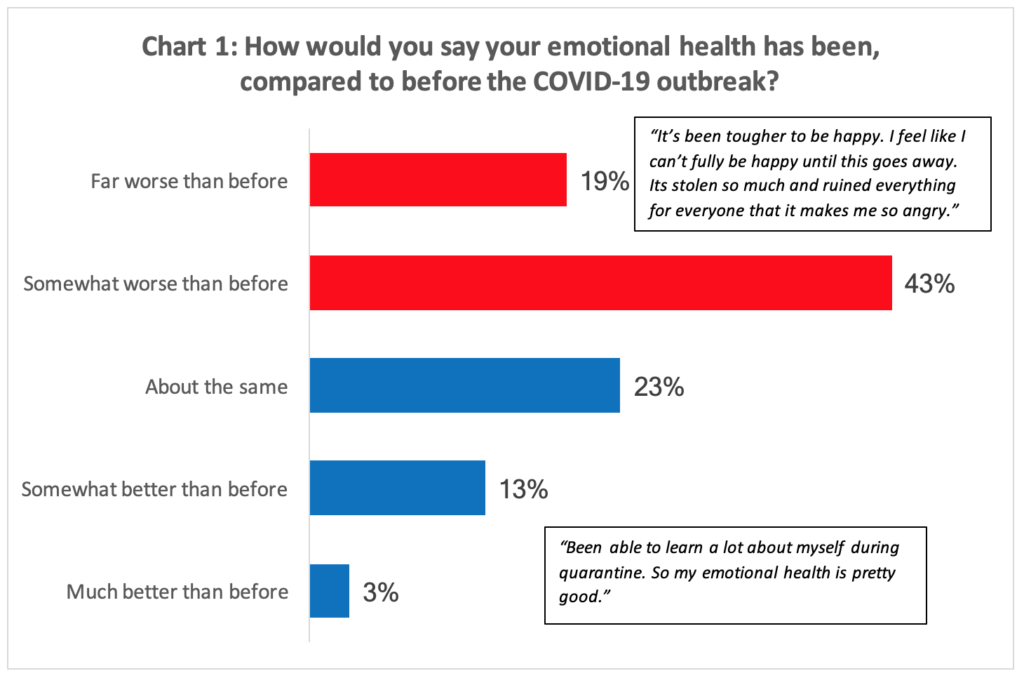
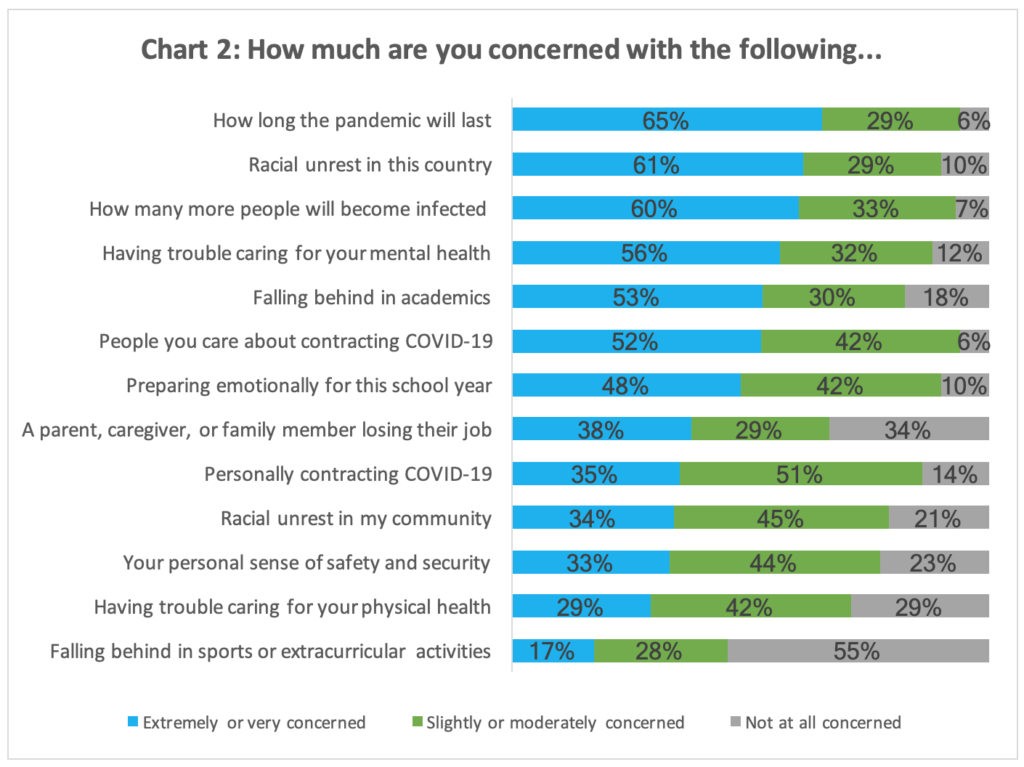
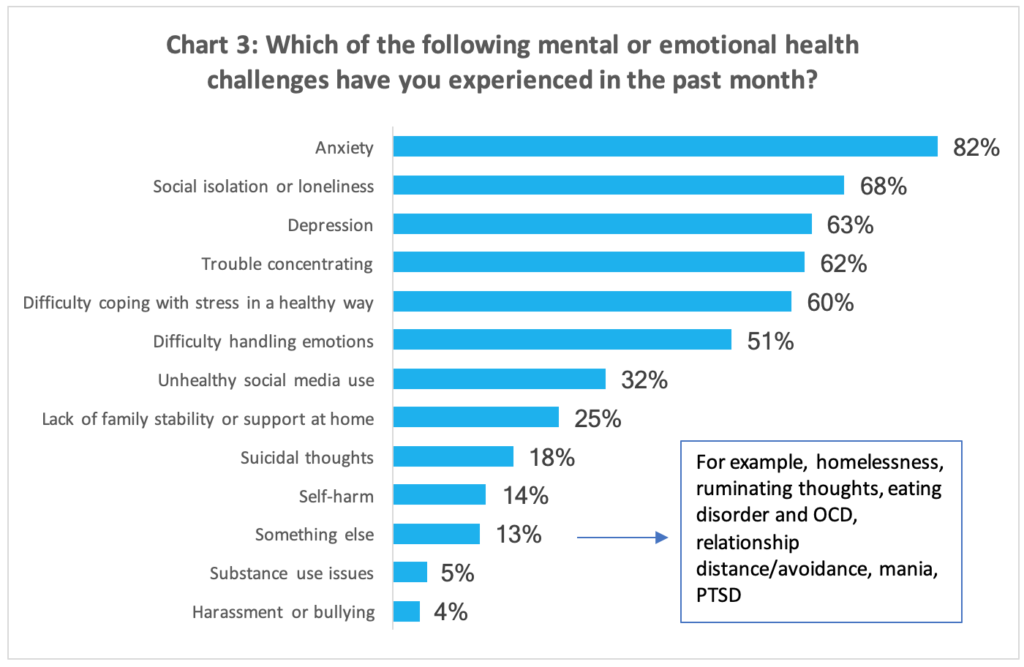
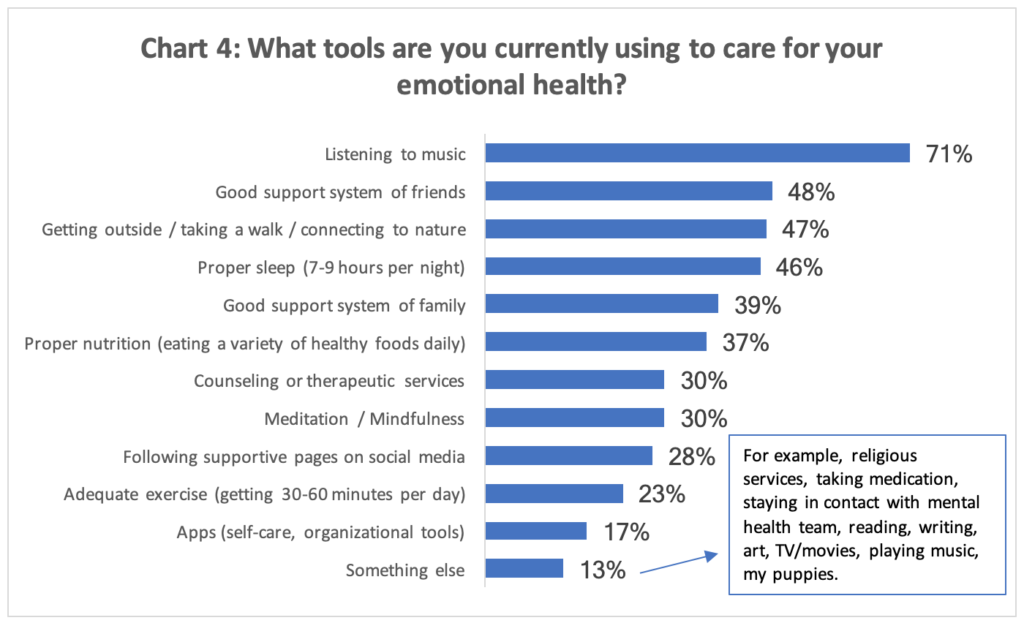
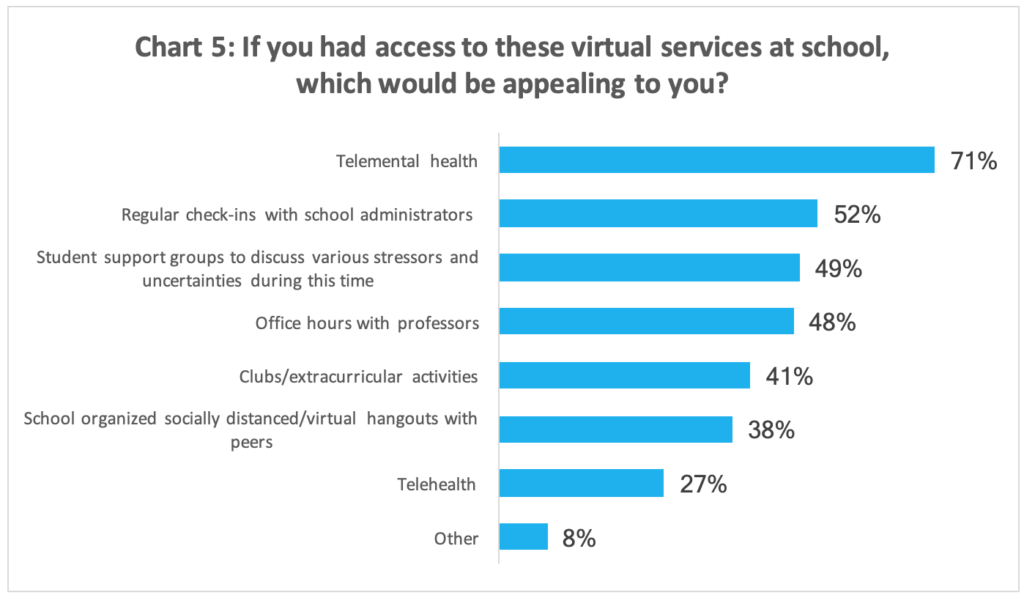
1 JED reached out to a large e-mail list of students to participate in an online survey about their readiness to start the Fall 2020 semester and their mental health concerns during this current time. The survey fielded from August 16-30, 2020. Responses included 182 undergraduate (90%) and graduate students (10%) from 79 colleges and universities across the U.S.
2 Active Minds Student Mental Health Survey, 2020, Healthy Minds Network & ACHA Survey, 2020
If you or someone you know needs to talk to someone right now, text, call, or chat 988 for a free confidential conversation with a trained counselor 24/7.
You can also contact the Crisis Text Line by texting HOME to 741-741.
If this is a medical emergency or if there is immediate danger of harm, call 911 and explain that you need support for a mental health crisis.